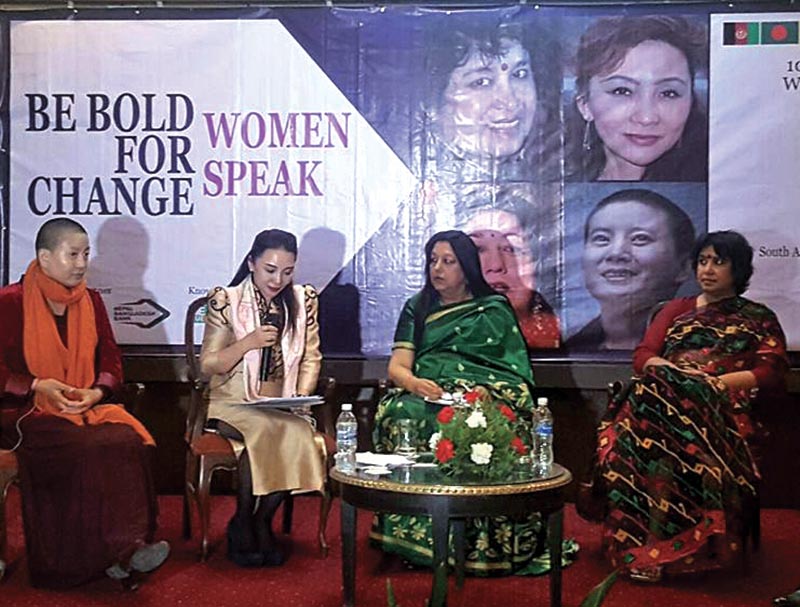Stakeholders bat for accelerated efforts to end gender imbalance
Kathmandu, March 20
Stakeholders have said though the initiatives taken to end gender imbalance have been delivering positive results, a lot more needs to be done for empowerment of women in South Asian nations.
Speaking at a programme organised by the South Asian Women Development Forum (SAWDF) here today to mark the 107th International Women’s Day event, Suraj Vaidya, president of the SAARC Chamber of Commerce and Industry (SAARC CCI), said that South Asia is grappling with various problems, like poverty, conflict, gender discrimination, among others, but the landscape of women empowerment is gradually changing.
“Out of the eight countries of the region, women are in leadership position in five nations,” said Vaidya, adding, “All the countries in South Asia have given high priority to women empowerment.”
Delivering her speech in the inaugural session of the programme, Rensje Teerink, ambassador of the European Union to Nepal, stated that women empowerment must be mainstreamed in the government’s policies and programmes. She laid emphasis on participatory budget allocation to empower women. Empowerment of girls and women leads to empowering the society, thereby bridging the gender gaps, according to Ambassador Teerink. “Still there is a mentality that women are subordinates of men, which is wrong as women are equally capable of taking leadership.”
She highlighted on the need to empower women from various aspects — socially, politically and economically.
Also speaking at the programme, Pramila Acharya Rijal, president of SAWDF, said that women are economically backward in South Asia. Citing that less than 10 per cent of small and medium enterprises in South Asia are owned by women, Rijal urged the apex body of the national federation and chambers in SAARC, the SAARC CCI, to ensure representation of women entrepreneurs’ organisations in SAARC high-level committees so that they can lobby with the governments and private sector for empowerment of women.
She also urged SAARC CCI to propose representation of SAWDF in SAARC Gender Policy Advocacy Group, formed under the SAARC Technical Committee on Women and Children.
In the second session, prominent figures from different countries of South Asia and China discussed women empowerment and theme of the International Women Day ‘Be Bold for Change’. Among the prominent speakers were popular novelist Taslima Nasrin from Bangladesh, industrialist Rita Singh from India, owner of Tech Co Ltd Junhua Wu from China and philanthropist Ani Choying Drolma.
READ ALSO:






